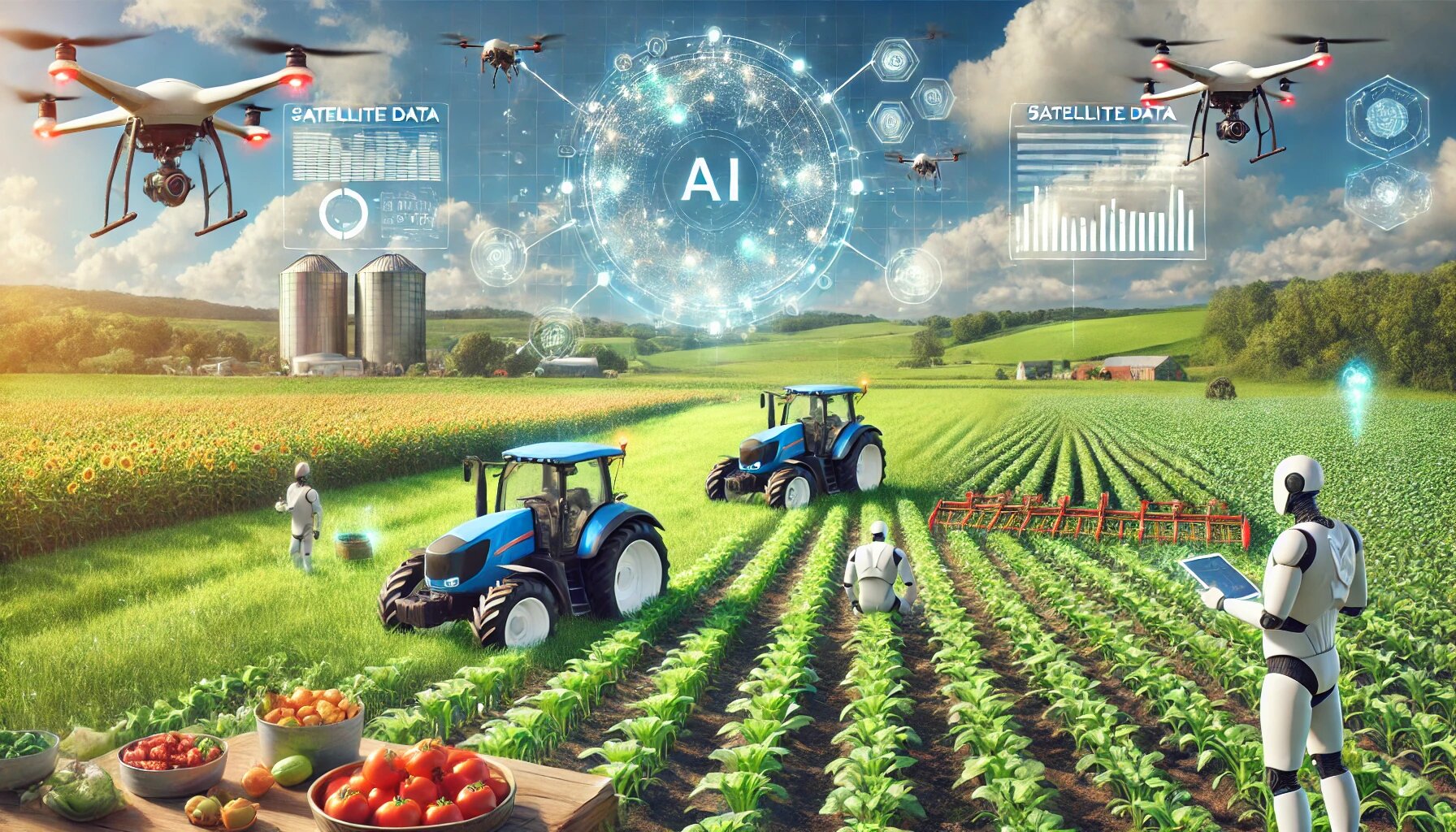
How AI Is Transforming Agriculture
Introduction
Artificial intelligence (AI) is revolutionizing agriculture by increasing efficiency, reducing costs, and improving yields. With the global population expected to reach nearly 10 billion by 2050, food production must become more sustainable and efficient. AI-driven technologies such as machine learning, computer vision, and robotics are helping farmers make better decisions, optimize resources, and mitigate risks associated with climate change, pests, and diseases.
AI in Precision Agriculture
Precision agriculture uses AI to analyze data collected from sensors, drones, satellites, and IoT devices to optimize farming practices. AI-driven decision-making allows farmers to:
- Optimize Irrigation: AI-powered irrigation systems use real-time weather data, soil moisture levels, and crop requirements to deliver the right amount of water, reducing waste and improving yields.
- Soil Health Monitoring: AI algorithms analyze soil composition, nutrient levels, and pH balance to recommend fertilizers and crop rotations, ensuring long-term soil fertility.
- Pest and Disease Detection: AI-powered computer vision systems identify early signs of pests and diseases, enabling timely intervention and reducing pesticide use.
AI-Powered Robotics and Automation
Robotics powered by AI is transforming labor-intensive agricultural tasks. Autonomous tractors, robotic harvesters, and AI-driven drones are reducing the need for manual labor while increasing efficiency.
- Autonomous Tractors and Machinery: AI-powered tractors use GPS and machine learning to navigate fields, plant seeds, and apply high-precision fertilizers, reducing waste and maximizing productivity.
- Harvesting Robots: AI-driven robots are capable of identifying ripe produce and harvesting it with minimal damage, reducing reliance on seasonal labor.
- Drones for Monitoring and Spraying: AI-equipped drones collect high-resolution images to assess crop health, detect weeds, and even spray pesticides or fertilizers in targeted areas, reducing chemical usage and costs.
AI in Supply Chain and Market Optimization
Beyond the farm, AI optimizes agricultural supply chains and helps farmers make informed market decisions.
- Yield Prediction and Demand Forecasting: AI analyzes weather patterns, soil conditions, and historical yield data to predict crop output, helping farmers plan better and avoid overproduction or shortages.
- Supply Chain Management: AI streamlines logistics by optimizing routes, reducing food waste, and ensuring fresh produce reaches markets efficiently.
- Smart Pricing Models: AI algorithms analyze market trends, demand fluctuations, and competitor pricing to recommend optimal selling prices for farmers.
AI’s Role in Climate-Resilient Farming
Climate change poses significant threats to agriculture, but AI-driven insights help farmers adapt.
- Climate Modeling and Risk Assessment: AI analyzes climate data to predict extreme weather events, allowing farmers to take preventive measures.
- Sustainable Farming Practices: AI suggests crop varieties suited for changing climates, promotes conservation tillage, and recommends alternative farming techniques to enhance sustainability.
- Carbon Footprint Reduction: AI optimizes resource use, reducing emissions and making agriculture more environmentally friendly.
Challenges and Ethical Considerations
Despite its potential, AI in agriculture faces challenges.
- High Implementation Costs: Small-scale farmers may struggle to afford AI technology, widening the gap between large and small farms.
- Data Privacy Concerns: Farmers’ data collected by AI-driven tools raises privacy and ownership issues.
- Job Displacement: Automation may reduce employment opportunities in traditional farming roles.
- AI Bias and Accuracy: Machine learning models can be biased if trained on incomplete or skewed data, leading to suboptimal recommendations.
Conclusion
AI is transforming agriculture by enhancing efficiency, reducing waste, and improving resilience against climate challenges. While challenges remain, ongoing advancements and policy support can help integrate AI across all farming scales, ensuring a more sustainable and productive agricultural future.

0 Comments